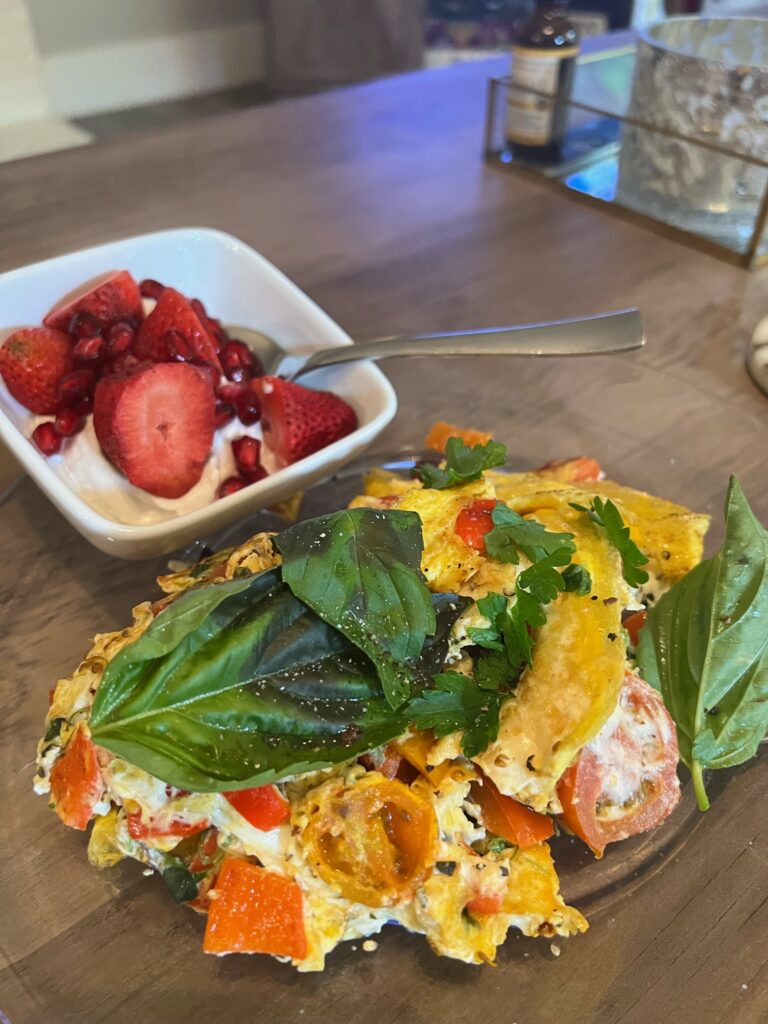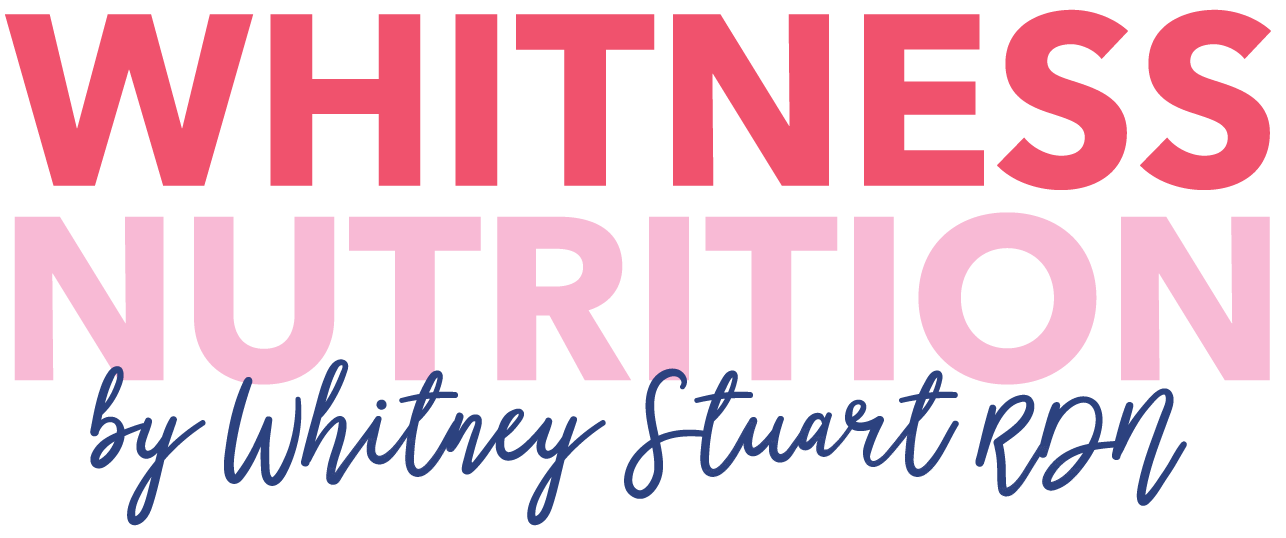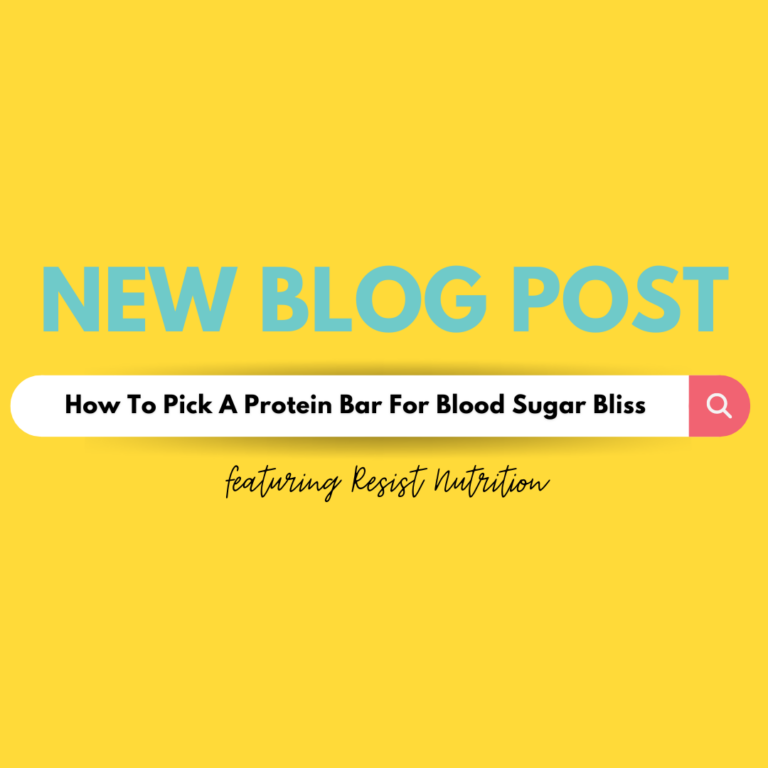How To Improve Your Blood Sugar in Seven Simple Steps
Balancing your blood sugar is crucial for maintaining overall health and well-being. Chronically high blood sugar leads to long term metabolic disease, diabetes and obesity. In these situations, when Hgb A1C runs high, it’s imperative to focus on controlling your blood sugar, along with fasting insulin. It can be helpful to work with a dietitian and diabetes educator (like myself!) and a health care team to improve your blood sugar through lifestyle changes.
How To Improve Your Blood Sugar in Seven Simple Steps
It’s not just people with diabetes who need to focused on healthy blood sugar levels. When your blood sugar levels are stable, you experience more sustained energy throughout the day. This will prevent those dreaded mid-afternoon crashes and unwanted mood swings. It also helps improve focus and mental clarity, allowing you to perform at your best in daily activities and tasks. Stable blood sugar levels also reduce the risk of developing chronic conditions such as type 2 diabetes, heart disease, and obesity. By adopting a balanced approach to managing blood sugar through proper nutrition and lifestyle choices, you can achieve a more harmonious and energetic life, enabling you to fully embrace each day with vitality and vigor.
Ready to change your life with these seven simple ways to improve your blood glucose? I implement all these strategies and more in our Blood Sugar Bliss method with all 1:1 patients!

1. Avoid Lonely Carbs
Carbohydrates are an essential source of energy, but not all carbs are created equal. Avoid those lonely carbs that rapidly raises blood sugar and cause blood sugar spikes. You’d be surprised, if you check your blood sugar, how quickly it elevates from a simple apple, banana or whole wheat toast eaten in isolation. Prevent this rise and fall by pairing them with a protein and/or healthy fat. For instance, when enjoying a banana, make sure to pair it with almond or peanut butter or a meat stick. This combination will not only keep your blood sugar stable but also keep you going strong throughout the day.
People aren’t aware that individuals without diabetes can experience large blood sugar spikes! Your morning oatmeal with dried food and milk could be spiking your sugar more than 100 mg dl, which is why many of my patients choose to wear a continuous glucose monitor.
2. Improve blood sugar with our VPFC Meal Format
To optimize your meals and maintain steady energy levels, consider following the VPFC format – Veggies, Protein, Fat, and Carbs. This is the foundation of our signature blood sugar bliss method. First, prioritize vegetables, as they are packed with essential nutrients and fiber to keep you feeling full and satisfied. Second, include plenty of lean protein sources like chicken, fish, tofu. Protein is the building block of our bodies and helps maintain (and gain!) muscle mass.
Third, add in those healthy fats. Healthy fats like avocados, olive oil, and nuts are crucial for brain health and provide a long-lasting source of energy. Finally, round out your meal with blood sugar friendly carb choices like legumes or sweet potatoes. Complex carbs support your body’s energy needs while still maintaining blood sugar balance.
3. Begin Your Day with a Protein-Rich Breakfast

The way you start your day sets the tone for the rest of it. While coffee might be a morning ritual for many, it’s important to remember that coffee is not a sufficient breakfast on its own. Instead, fuel yourself with a protein-rich morning meal to jumpstart your metabolism and keep you feeling energized. Have your coffee after you’ve eaten that good meal.
Consider options like scrambled eggs with sautéed spinach to improve blood sugar. Or, a protein-packed smoothie with spinach, or a Greek yogurt bowl with added protein powder and berries. These breakfast choices will provide you with the necessary nutrients to stay focused and productive throughout the day.
Achieving optimal health and vitality is within your reach! By making simple yet effective changes to your eating habits, you can experience more energy, enhanced focus, and a renewed sense of being your best self. Remember to pair carbs wisely, prioritize non-starchy veggies and lean proteins, and kickstart your day with a protein-rich breakfast.
Need healthy breakfast ideas? Use these breakfast ideas to improve blood sugar!
- Blood Sugar Bliss Breakfast for Every Day of The Week
- A Healthy Breakfast Bento Box
- Egg Free Balanced Breakfasts
If you’re ready to take your health journey to the next level, book a discovery call with Whitness Nutrition today! Take the first step towards a healthier and happier you!
4. Walk before your meal
You might be surprised to know that exercise acts as a natural insulin; naturally lowering your blood sugar. That’s right – when you walk, it stimulates your muscles to utilize blood sugar, otherwise trapped in your blood stream, as energy! This passive process allows the muscle to use the sugar for energy thus, lowering your overall blood sugar. And, it doesn’t take much. Research shows that even a ten minute walk after a meal can make a powerful difference on your overall blood sugar. And, if you can’t leave the office, 30 squats might be even more effective! Flex your muscles for better blood sugar, long term, by also scheduling thrice weekly strength training sessions. It’s recommended that individuals exercise regularly; this means 150 cumulative minutes of physical activity per week, or about 20-30 minutes per day! The more muscle your body has, the more insulin sensitive it is. Muscle is active tissue that needs energy and having more of it not only makes your body more efficient at using sugar but it can also affect blood sugar by lowering overall insulin resistance (the precursor to diabetes and metabolic health).
5. Upgrade your carb; choose a low glycemic swap
If you’ve been leaning on mostly whole grains and oatmeal as your preferred carbohydrate choices, consider going whole with some less processed fiber rich options. The more fiber a carbohydrate contains, the less impact it has on your blood sugar and the more likely it is to keep you full! Satiety with less spikes is a powerful combo for blood sugar health.
Berries
Low-glycemic carbs release glucose slowly into the bloodstream, which helps maintain steady energy levels and prevents blood sugar spikes. Some good options to consider include:
- Blueberries
- strawberries
- raspberries
- blackberries
And, these also contain antioxidants!
Legumes
We often forget about legumes (because many people consider them a protein!) as a good low glycemic carbohydrate! Lentils, chickpeas, black beans, and kidney beans are all rich in fiber, but also provide a boost of protein! I love utilizing this in a high protein chili recipe with lean beef or turkey, cauliflower rice and veggies, and lentils or black beans!
Sweet Potatoes
These potatoes also have a lower glycemic index than traditional white potatoes. And, they’re so versatile! Add them to sweet or savory dishes with breakfast, lunch or dinner!
Although there’s many extreme recommendations for individuals who are focused on improving blood sugar to decrease their fruit intake, I actually promote their intake because of the large variety of vitamins and minerals they provide. My favorite low glycemic fruits, outside of bears, include
- Apples
- Pears
- Peaches
Hot Tip: Always eat the skin for additional fiber support!
6. Drink water!
This is such a simple action that oftentimes I forget how critical it is to educate on and emphasize! But, Americans are walking around os dehydrated. Stay hydrated, friends! Your sweet tea, latte, protein drinks and boba tea dont’ count as your water intake, Urine needs to be light yellow all day. It’s imperative that you start your day with 16 oz of water before you do anything else. I set a 24 oz glass by my bedside and chug that every morning before coffee, movement, or breakfast. It’s so critical. Dehydration alone can run your blood sugar up to 30% higher.
7. Limit alcohol to improve blood sugar
Not only is alcohol not required in the diet (yes, you can get flavonoids somewhere else!) but it causes you to feel more hungry, crave sugar and salt, disrupt REM sleep, and dehydrates you! When we’re dehydrated and craving carbohydrates, it becomes very difficult to make healthy food choices. Keep your blood volume from getting too concentrated by minimizing your intake of alcohol to no more than four drinks per week. If you do drink alcohol regularly, it’s important to note that alcohol also worsens gut and hormone health, not to mention mental health.
If you’re ready to take your health journey to the next level, book a discovery call with Whitness Nutrition today! Take the first step towards a healthier and happier you!






